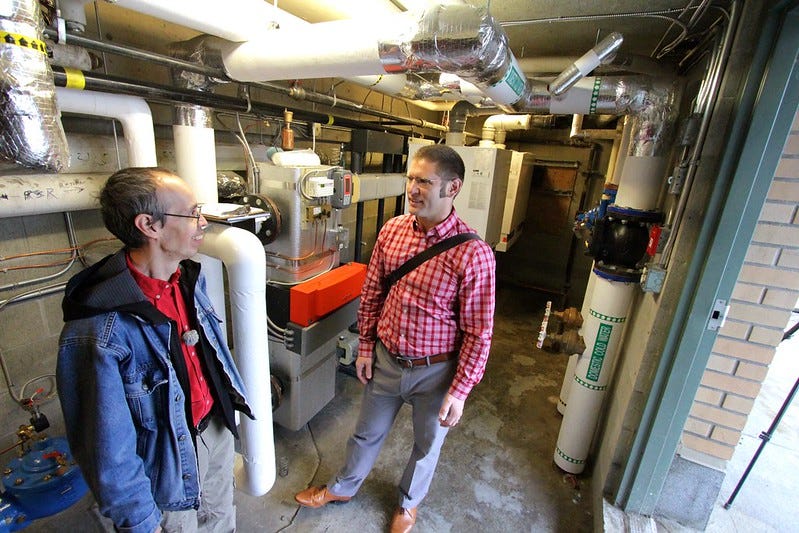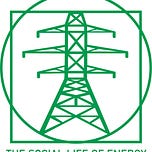Before starting off the newsletter proper, I’d like share some meta-reflections on the IPCC report:
Arthur Petersen (Prof. Science & Technology, UCL) is pleased:
Scientists are no longer afraid to tell it like it is: humans are causing the recent warming of the planet. They are more self-confident. But what also has changed is that people are more willing to listen to them. (in Dutch newspaper NRC)
But they’re not telling quite like it is. Emily Atkin (journalist, Heated newsletter):
if you only read the summary for policymakers, you’ll find out that human “activities” and “influence” are “unequivocally” causing climate disasters—but which activities and influences are the greatest will remain a mystery. It’s all just “Humans,” “emissions,” “activities,” and “influence.” You’ll learn the world is ending, and you will not know who to blame.
This is not so surprising, writes Robinson Meyer (journalist, the Atlantic), because the IPCC was called into being to deliver consensus science that global warming is indeed happening (to cut off political leaders looking for the easy, denialist exit of global cooperation). That task has its own virtue:
I find the IPCC reports quite beautiful, almost moving. The IPCC is a novel organization in world history: a group of volunteer scientists tasked with figuring out precisely what their field believes at the moment, a modern version of Diderot’s Encyclopedia.
You can also read about the ‘neutrality’ of the IPCC in this earlier SLE edition (about biofuels) and about the kind of forecasting work of it does here.
But now, let’s go back to examining how we can get business to heed the IPCC call!

Dear folks, welcome back to SLE's ongoing series on sustainable entrepreneurship. As a reminder, two questions drive the series:
firstly, how are new energy markets established? How are products made and services designed, regulations complied with and new regulations lobbied for, customers found and prepped, and products and services sold?
Secondly, can sustainable entrepreneurship, as a type of ethical entrepreneurship, create products and services that are actually doing good for their users and stakeholders? That is to say, in this world of deepening inequalities: do they help emancipate citizens, lift up the downtrodden?
The gist
The distinction between the first and second question is the distinction between the green economy and the social economy.
The green economy consists of those business models that do not add to pollution and ideally even straight-up reduce it. The social economy, by contrast, refers to business practices that do not aggravate and ideally reduce inequities.
Both face some market-making challenges: green entrepreneurs (last edition’s "ecopreneurs") need to convince money to follow new revenue streams, and very similarly social entrepreneurs (sociopreneurs?) need to convince money to flow away from the usual investment objects. But the one does not necessarily make the other. Tesla – in some sense – is a green business. It is not – in any sense – a social business.
But what if you want to be both? Great idea, couldn’t be more timely! For inspiration, we’ll do a case-study of one such socioecopreneur™: or, a person making a business case for cleaner energy and greater equity all at once. The case is Charlie Lord, who wants to combine decarbonization with a better life for people in vulnerable communities, by improving housing and creating new, local jobs to do it.
The case study, as well as the distinction between the social and green economy, and many more insights come from this week's reading:
Julia Affolderbach & Rob Krueger’s “Just” ecopreneurs: re-conceptualising green transitions and entrepreneurship. Published in Local Environment, in 2016.
The story
Charlie Lord is an environmental lawyer who finished his studies at the moment that indigenous, Black and Brown communities were causing scenes in the environmental movement of the time, condemning leadership for ignoring the effects of environmental pollution and destruction on vulnerable communities ‘at home’. Inspired by these critiques, Charlie Lord and college buddy Wlliam Shutkin started ACE in Massachusetts, an advocacy group that worked bottom-up to document environmental inequality and lobby or litigate for change.
After ACE “took a life of its own”, Lord moved on to address a gnawing problem: that ACE, as a non-profit organization, was there to pick up the pieces left behind by self-interested for-profit enterprises. Business, he felt, should be just as community-interested. He therefore started a company for ‘eco-innovation services’ (C-Quest Capital). It's worth copying Affolderbach and Krueger in full here:
His business plans look and feel very conventional to investors. For example, his recent venture, which is to do green retrofits in buildings over 35,000 sq/ft, gives investors the look and feel of a [conventional] real estate investment where investors expect in the neighbourhood of 10–14% return on their money. The building owners get a savings on their energy costs. Lord’s firm is working with the Boston Impact Initiative to ensure that for at least some of the projects, people in the community are trained for jobs and get experience doing “green” work. (11)
By converting regular investors into unwitting ethical investors, he hoped to take the social economy out of not-for-profit domain.
The why
At stake in his and others’ attempts is nothing less than the world we want. Arguably, the climate crisis demands that we come up with:
business models that are not driven by profit-maximisation and rational choice [alone] but by ethical considerations, alternative norms, and values. (2)
Business models that are not bound by non-financial values might wind up reproducing the same systemic conditions for inequalities and (natural) exploitation.
For an example, let's take a look again at last issue’s sustainable energy business, Sunrun.
Its foundational mission is to increase the adoption of solar. It therefore has to have a pretty solid financial pitch to (middle class) homeowners, for whom it can thus do good. However, it might not have much to offer to people in more vulnerable neighbourhoods or marginalized communities, where different property relations, local regulations, building suitability, lack of time and awareness necessary to sort things out, or low trust in financial systems constitute significant obstacles. Sunrun’s not being an evil capitalist pig, but its business model cannot address these issues and thus 'deliver on the good' for these potential customers.

So, the demand is to come up with business models that can.
Charlie Lord’s services are no different from those offered by other companies in the green building sector. What the environmental justice-driven approach has brought to the new business model is a revaluation of goals where venture capital in the form of environmental services is used as a means to achieve defined environmental justice outcomes (e.g. through social employment contracts with clients and a focus on disadvantaged and poor neighbourhoods). (10/11)
Affolderbach and Krueger’s response to the demand comes in the form of business models driven by environmental justice. Business models that redress (environmental and economic) inequalities and help the marginalized also attain a good life. That's perhaps the real challenge for the economy the coming decades. To figure out the economics of sustainable wellbeing, also on the level of business administration.
Now, the authors’ environmental justice 'framework' remains quite general. I'll be exploring how to specify this framework more, but if you know of more concrete leads do let me know (or everyone directly by commenting below)!
The ramble
Finally, the real challenge poses the ultimate question in transition studies: what can ethical entrepreneurship change? What is its impact? What does it transform? The social economy is perhaps by its very nature, for better and for worse, limited to local social change, always falling short of transformation. Sunrun, by contrast and by virtue of its for profit motive is more traditionally capitalist. It seeks to grow, break out of its niche, turn mainstream. There's potential transformative power bundled there. Meanwhile, the transformative potential of the social economy is perhaps best built and harnessed by policymakers, by recognizing and nurturing small-scale activities, allowing these activities to cast out seeds and multiply. Community energy looks like a great example of this. Structural support is even on its way, although, like all innovation, it’s complex, messy work.
👋













Share this post